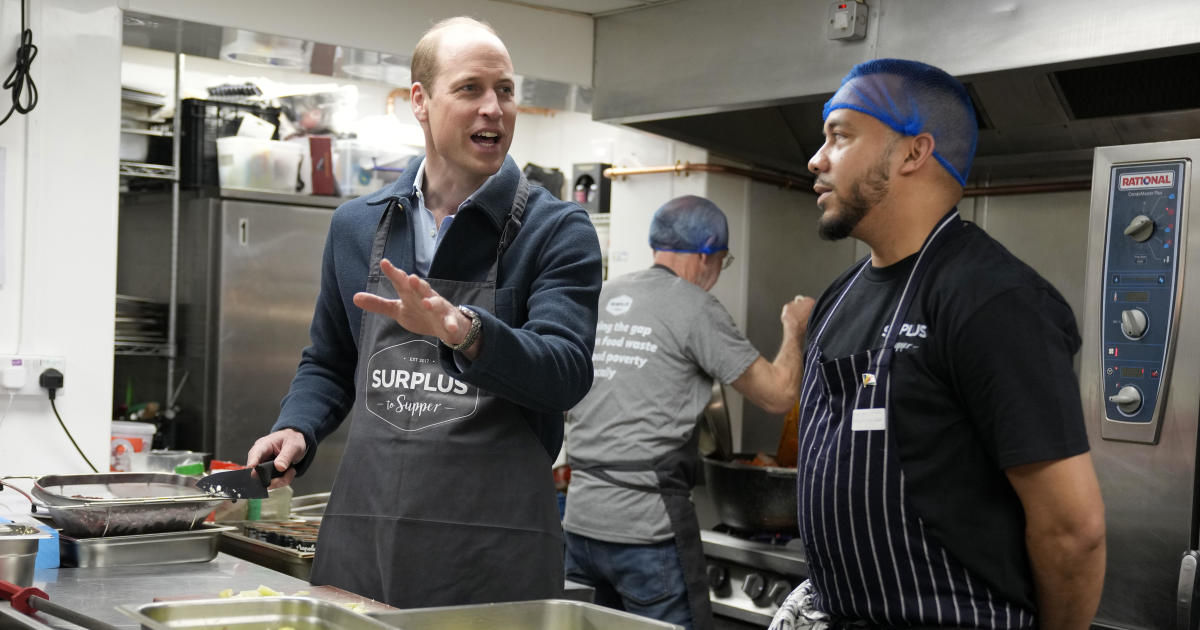Study shows vaccines carry much lower risk of blood clots than COVID-19
London — A study by researchers at Oxford University in England suggests the risks of experiencing dangerous, rare blood clots in the brain are far higher in those who catch the coronavirus than in those who get either the AstraZeneca vaccine, or the vaccines made by Pfizer and Moderna in the U.S.
Another finding of the research, which was disputed by Pfizer and called "confusing" by the top infectious disease expert in the U.S., was that the number of people who experience clots after getting the vaccines made by the American companies appears very similar to the number who get the rare condition after a shot of the AstraZeneca drug, which was developed in conjunction with Oxford's vaccine institute.
The key finding of the research, revealed Thursday as a "pre-print" study which has yet to be reviewed by other scientists, was that the risk of experiencing a blood clot in the brain was about 95 times higher for people who contract COVID-19 than in the general population.
That's yet another serious health threat associated with the disease, and one the scientists hoped would boost confidence in all of the major vaccines currently available in the Western world, as their research suggests the drugs carry a significantly lower threat of clotting than the disease they've been proven to fend off.
"This is more evidence of the vaccine helping people in a dramatic way from the ravages of COVID-19," CBS News medical consultant Dr. David Agus said of the study on "CBS This Morning."
The analysis of real-world data collated by the global health research network TriNetX and European agencies included information on hundreds of thousands of people who either caught COVID-19, or who were given the AstraZeneca, Pfizer or Moderna shots. Most of the data on the mRNA-type vaccines, which are the American drugs, was from the U.S., while data on the AstraZeneca shots came largely from Europe's mass-vaccination programs.
The data showed that about 4 in every 1 million people who get the American-made vaccines experience cerebral venous thrombosis (CVT), or blood clots in the brain. With the AstraZeneca vaccine, which works in a different way and is similar to the Johnson & Johnson shot, the research showed an incidence rate of about 5 in every 1 million.
That equates to a risk of CVT 10-times greater for people who catch the coronavirus than for those who get the Pfizer or Moderna vaccines, and 8-times greater for those given the AstraZeneca shot.
In a statement issued on Thursday after the Oxford data was released, Pfizer said that its own "comprehensive assessment of ongoing aggregate safety data... provided no evidence to conclude that arterial or venous thromboembolic events, with or without thrombocytopenia, are a risk associated with the use of our COVID-19 vaccine."
Pfizer noted that a CDC review of data had detected slightly more cases of CVT in people given the Johnson & Johnson vaccine in the U.S., but "no similar findings have been observed with the authorized Pfizer-BioNTech vaccine."
Even the authors of the Oxford pre-print study acknowledged that "all comparisons must be interpreted cautiously as data are still accruing."
But Dr. Anthony Fauci, head of the U.S. National Institute of Allergy and Infectious Diseases and the top medical advisor to President Biden, called the study's conclusions comparing the different types of vaccines "confusing," and said the way it was carried out, such comparisons couldn't realisticly be made.
"Suggesting that the complication [CVT] following one vaccine is similar to that of the other... it is impossible, the way this study was designed and conducted, to make that determination," Fauci told U.S. lawmakers on Thursday.
Citing what he called "many, many... procedural gaps" in the way the study was carried out, Fauci said he believed that with peer review by other scientists, "that confusion will be straightened out and it will be clear that you cannot make any statement, the way this is designed, about the adverse events following the vaccination with the mRNA comparing to anything else."
Fauci did not dispute the study's core finding, however, that in people who catch COVID-19, "you get a very marked increase in the incidence of this adverse situation of cerebral venous thrombosis."
The Oxford researchers noted that it was still unclear whether "COVID-19 and vaccines lead to CVT by the same or different mechanisms," and said that would be a subject of their ongoing research.
"There are concerns about possible associations between vaccines, and CVT, causing governments and regulators to restrict the use of certain vaccines," noted Paul Harrison, Professor of Psychiatry and Head of Oxford's Translational Neurobiology Group, as the U.K. study data was released on Thursday. "We've reached two important conclusions. Firstly, COVID-19 markedly increases the risk of CVT, adding to the list of blood clotting problems this infection causes. Secondly, the COVID-19 risk is higher than seen with the current vaccines, even for those under 30; something that should be taken into account when considering the balances between risks and benefits for vaccination."
The research by Oxford found that about 39 of every 1 million people who contract COVID-19 are likely to experience clots on the brain. The scientists stressed that the point of their research was not to compare vaccines, but to gather firm data on the risks of all the vaccines compared to the risks associated with catching COVID-19.
"The signals that COVID-19 is linked to CVT, as well as portal vein thrombosis — a clotting disorder of the liver — are clear, and one we should take note of," said Dr. Maxime Taquet, another of the researchers from the Translational Neurobiology Group.



